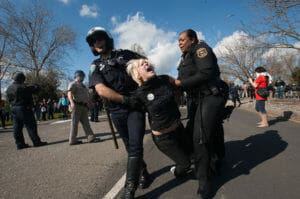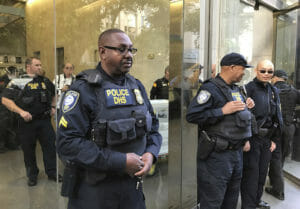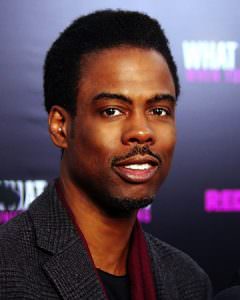‘Strong Island’ Recounts Slaying of Director’s Unarmed Brother
The new film provides a personal perspective on the wider issue of racism in the U.S. criminal justice system. An old photo shows William Ford with his siblings Lauren (left) and Yance (right), director of "Strong Island." (Netflix)
An old photo shows William Ford with his siblings Lauren (left) and Yance (right), director of "Strong Island." (Netflix)
The wait is over for “Strong Island.” Yance Ford’s documentary, which won the special jury award for storytelling at this year’s Sundance Film Festival in January, will be released in select markets and began streaming on Netflix on Friday. In a sadly familiar story, the new movie chronicles the failure of the criminal justice system after the 1992 shooting death of Ford’s brother, 24-year-old schoolteacher William Ford, who was unarmed. Understandably, the event had a profound impact on the Ford family that continues today, 25 years later.
Yance Ford, who is transgender, grew up in the segregated, middle-class neighborhood of Central Islip, Long Island, N.Y., in the 1980s and ’90s. His father, also named William Ford, drove the J train for the metro. His mother, Barbara, taught inmates at Rikers Island. His big brother, William, he idolized.
In the winter of 1992, a car belonging to the younger William’s girlfriend was in a fender-bender with a truck belonging to Super Stang, a local body shop. Instead of going through the usual channels to repair it, William was persuaded to allow Super Stang to fix the damage for free. Weeks went by and the car remained unavailable until, on the night of April 7, William and his friend Kevin paid the shop a visit.
Angry words were exchanged until Super Stang employee Mark Reilly, a 19-year-old white man, went into the garage and out of sight. When William followed, shots were fired. William stumbled backward with a .22 mm bullet in his chest and died at the scene. Moments later, a limo arrived, and Reilly had a conversation with someone in the back seat. In the end, a grand jury decided that Reilly had been justifiably in fear for his life, despite the fact that William had been unarmed and threatened no violence.
“This is not a film about guilty or innocent,” says Yance, a former producer for the PBS documentary showcase “POV.” “This is a case that didn’t even warrant being classified as a crime” by the legal system. “That so rarely happens in homicide cases. My brother was not shot and killed by a policeman. He was shot and killed by a civilian that the grand jury deemed acted in self-defense. And the threat that he made was not one of physical violence. He threatened to come back and have the garage shut down.”
As the family goes through a nightmarish system that treats them not as victims but as suspects, the illusion of equal protection under the law vaporizes before their eyes.
“At the scene of the crime, my brother’s friend Kevin is told that he has a lot of explaining to do—but not Mark Reilly,” observes Yance. “There is clearly an influence of an extrajudicial nature on the entire crime scene.
“And I think that is typical of the black American experience with the criminal justice system. We see constantly there are outside influences, be it Justice Department policies, or unwritten policies of individual D.A.s, unwritten policies of individual police departments. There is extrajudicial influence, and frankly it’s based on race.”
Yance’s mother, Barbara, arrived at the scene and was forced to wait behind a barricade before learning that her son was being airlifted to the emergency room. In addition to the emotional toll of losing a child, Barbara suffered an existential crisis that shifted her worldview.
“My mother believed, because my brother was not armed, because my brother was not acting in an aggressive fashion on the night he was killed, because there was a backstory on this entire thing, the case would go to trial—because there were so many unanswered questions,” Yance says.
The one thing Barbara didn’t know was that William had been to Super Stang about three weeks before the incident, on March 19. Tempers flared that night, and he brandished a car door and later threw an industrial vacuum cleaner. Evidently, this information was enough to convince the all-white grand jury that Reilly had acted out of mortal fear on the night of the killing and should not be charged.
“The [legal] standard is not simply ‘afraid.’ The standard is [supposed to be] ‘reasonably afraid,’ ” explains Yance. “We don’t see grand juries, and we do not see district attorneys, articulating how they have decided that these cases are one bit justified by reasonable fear. I don’t think it’s reasonable.”
Understandably, the murder of William Ford had a seismic effect on the family. Yance’s father suffered a stroke a year and a half later and has since died. His mother dropped into a coma for 20 days and died in 2012.
At 45 now, Yance is thankful for his loving partner, his close relationship with his younger sister, and a successful career, with “Strong Island” being positioned for an Oscar run.
As for his mother, her tragic conclusion about her own culpability in her son’s death echoes through the final part of the film: “I did William a great disservice in raising him the way we did. We’ve always tried to teach you guys that you see character and not color,” she tells Yance in one scene. “And many, many times I wonder how could I be so wrong?”
For Yance, “Strong Island” is an example of how the justice system routinely fails people of color. But more important, his film examines the impact of that failure on families and communities.
“I want people to think about Tamir Rice’s family 25 years from now. I want people to think about Trayvon Martin’s parents 25 years from now, Renisha McBride’s parents 25 years from now, Sandra Bland’s family 25 years from now,” Yance says, pausing to collect himself. “The wholesale fear of black people being an excuse for the taking of black lives, that has got to stop.”
Your support matters…
Independent journalism is under threat and overshadowed by heavily funded mainstream media.
You can help level the playing field. Become a member.
Your tax-deductible contribution keeps us digging beneath the headlines to give you thought-provoking, investigative reporting and analysis that unearths what's really happening- without compromise.
Give today to support our courageous, independent journalists.




You need to be a supporter to comment.
There are currently no responses to this article.
Be the first to respond.